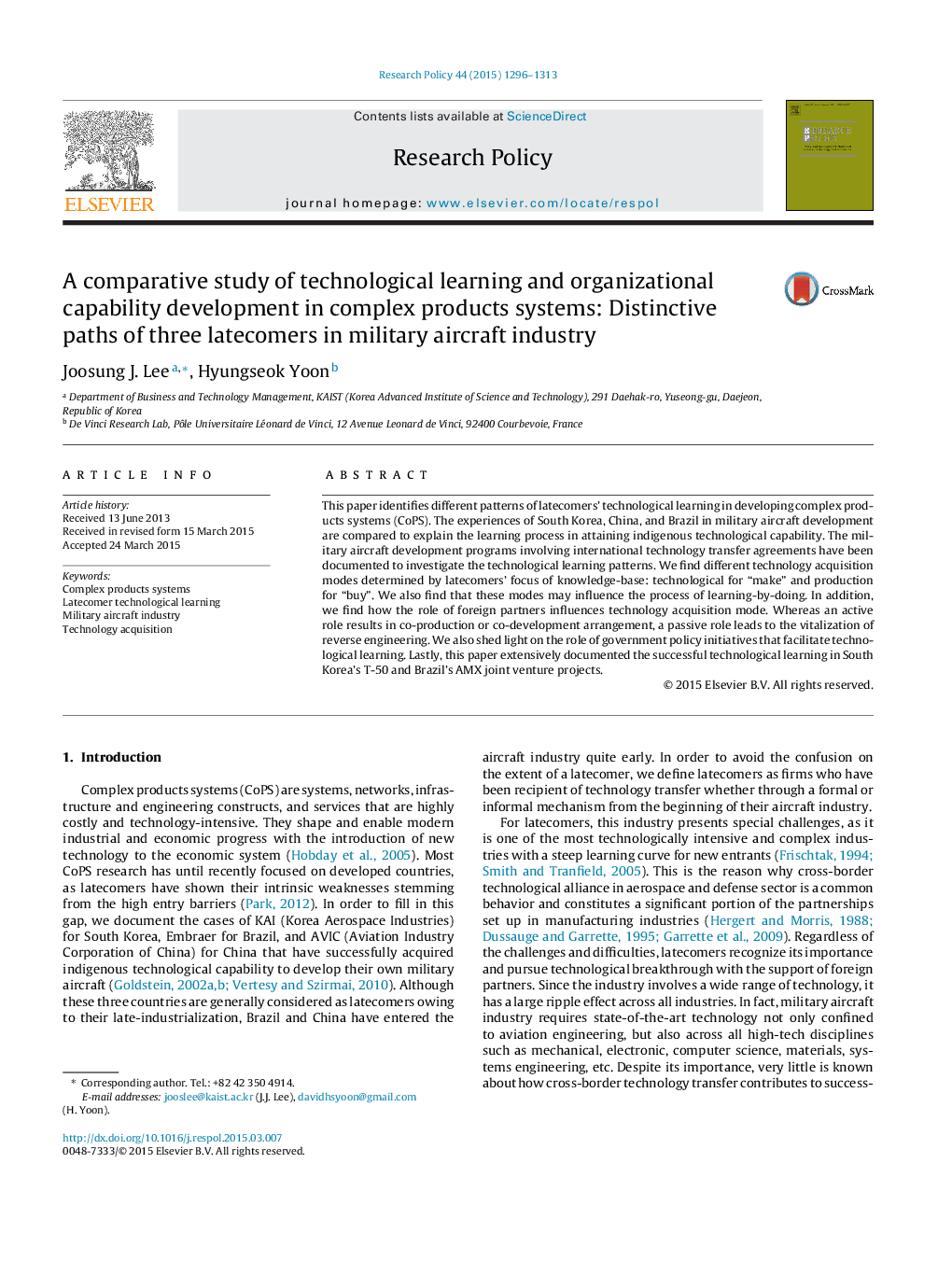| Article ID | Journal | Published Year | Pages | File Type |
|---|---|---|---|---|
| 10482901 | Research Policy | 2015 | 18 Pages |
Abstract
This paper identifies different patterns of latecomers' technological learning in developing complex products systems (CoPS). The experiences of South Korea, China, and Brazil in military aircraft development are compared to explain the learning process in attaining indigenous technological capability. The military aircraft development programs involving international technology transfer agreements have been documented to investigate the technological learning patterns. We find different technology acquisition modes determined by latecomers' focus of knowledge-base: technological for “make” and production for “buy”. We also find that these modes may influence the process of learning-by-doing. In addition, we find how the role of foreign partners influences technology acquisition mode. Whereas an active role results in co-production or co-development arrangement, a passive role leads to the vitalization of reverse engineering. We also shed light on the role of government policy initiatives that facilitate technological learning. Lastly, this paper extensively documented the successful technological learning in South Korea's T-50 and Brazil's AMX joint venture projects.
Keywords
Related Topics
Social Sciences and Humanities
Business, Management and Accounting
Business and International Management
Authors
Joosung J. Lee, Hyungseok Yoon,
